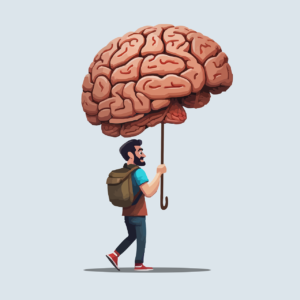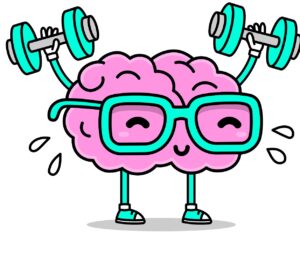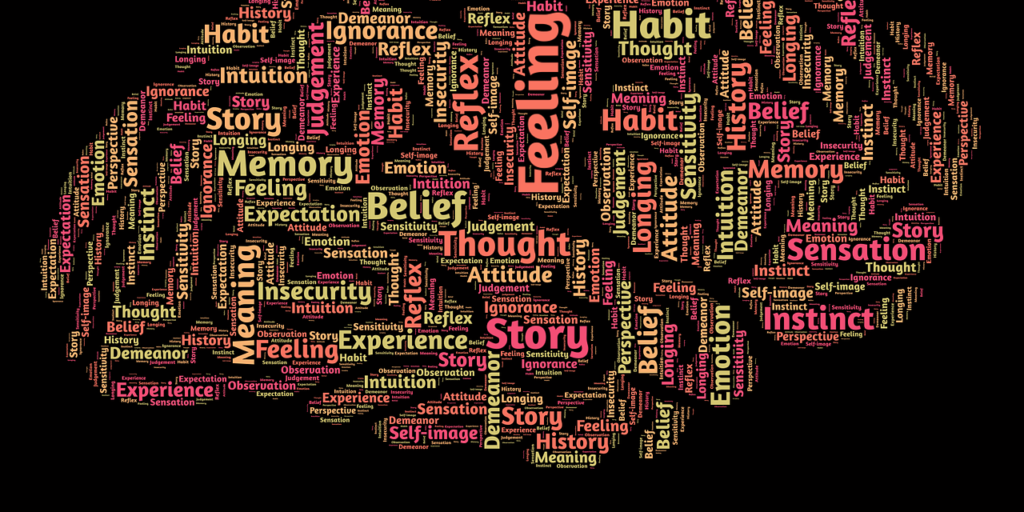Read time 6 minutes
This blog is another opportunity to feel grateful. Thank you, dear Universe, you continue to bless me with recovery and health.
It is said to believe that our entire body is in the mind and not the mind in our body. Patients struggling with any kind of disease have one thing in common. They desire to regain fitness.
Hope, we knew our minds a little more and were able to measure their impact on our well-being. Our health graph could have been on a different level.
Together our physical and mental health contribute to our sense of wellbeing. Taking steps towards maintaining, and nurturing our mental health, we can live healthy.
Our mind is quite unsettled, and restless, isn’t it?

The idea of this blog is to cover aspects that helped me keep my mind involved productively during rough patches.
I was diagnosed with a rare disease called Isaacs’ Syndrome. Isaacs’ is a neuromuscular health condition that stems from muscle hyperactivity. My lift post-diagnosis underwent a drastic change. In the process, I also discovered that I had Lyme disease. Lyme is a bacterial illness that gets transmitted through ticks. I was also accompanied by Glaucoma. Glaucoma is an eye-related disease that damages the optic nerves. And Membranous Glomerulonephritis is a progressive kidney disease.
A Chronic disease refers to a medical condition that has a sudden breakout. It lasts for a couple of days and needs short-term care. E.g. in cases like fever, cold and cough, heart attack, or a broken bone. The core focus is to reduce and finally eliminate the symptoms.
Whereas a Rare disease is not sudden and takes time to manifest. Thus, a person needs a backbone to rely on. A holistic healing approach that works both on my mind and the spirit to curb symptoms.
Living with a rare disease with a list of ongoing alien symptoms isn’t easy. After diagnosis, many unanswered questions and emergencies led to tremendous stress and anxiety. Symptoms like insomnia, high blood pressure, and sugar levels kept adding to the list.
In my experience, Isaacs’ Syndrome is not at all simple. Pain is one of the scariest words in our vocabulary. There was a list of other symptoms that accompanied my rare disease. Though I was trying my best, the solutions weren’t so easy.
Understanding my Monkey Mind a little better
Our mind is a complex entity, often compared to a nimble monkey in Buddhism. It creates a cacophony of ideas and emotions that hinder the healing process.
Our mental state plays an important role in determining our experience of symptoms. Feeling stressed is a normal phenomenon. At times these circumstances cannot be changed but some methods could influence them.
Scientific studies show that our mental well-being has positive effects on our overall health. We have the inbuilt ability to heal. The placebo effect explains how we can heal the body with the help of our mind. The powerful intention to change can change. Having said that there is much more to placebo and positive thinking. A stronger connection is required between the body and the brain to show results.

Ways to engage constructively with a strong intention to heal made a lot of difference
A lot of my healing credit goes to understanding this mind-body relationship.
I created my daily routine:
Staying within the gambit of my health limits I created a things-to-do list. It gave a road map for better time management.
Having the right focus, and an understanding of how the day looked like was very helpful. It kept me away from unnecessary thinking.
Over some time, this exercise showed positive results.
I spent my time, for a purpose:
This is among my favourites.
I got out a pen, and some paper and started writing my experiences. The idea was to create awareness of rare and chronic health conditions through my website, Ordinarily Rare.
I started spending time on what mattered the most. The gap of not having access to the proper information about my illnesses left us very anxious. It was so motivating and enriching to build a community and share experiences to help others. It allowed me to stay active and educate myself.
I discovered much about myself.
I practiced self-care:
Walking in the greens, reading, exercising, therapies, and taking up a hobby were some of my ways to self-care.
Engaging in self-care relaxed my mind and gave me immense health benefits. It was important to spend time with myself and hear what my body and mind were telling me.
In the process, I learned extensively about my do’s and don’ts. The exercise was not exhaustive or elaborate instead felt happy.
Spend time with family and friends:
Social support was key through my stressful times.
I enjoyed the company of my family and friends. They were mentally engaging and helped preserve my cognitive functions.
I played card, video, and board games which improved my cognitive health and kept me active.
Broke my monotony:
There was a time when things became too mechanical and boring. I tried not to let monotony lower my morale.
I heard music and gained new perspectives by reading and watching interesting pieces. A lot of my time went into gathering information about my illnesses.
There were many ways to constructively engage my mind.
From Medicines to Meditation:
It was a stress buster and enhanced the quality of my mental state.
It helped me in countless ways. It balanced my blood pressure levels, and improved sleep patterns. It managed my chronic pain and other symptoms.
Cognitive Restructuring:
By now you might guess that these diagnoses altered the course of my life. My identity changed from being a healthy person to becoming a patient. The transition was torturous, to say the least. The suffering percolated into an integrated interventional process and generated negativity.
I took professional help from my Neurologist on ways to overcome these challenges. After a couple of sessions, I found that anyone can use these to improve their thinking habits.
Cognitive restructuring is a therapeutic technique used to change negative thoughts.
To change unproductive thoughts, it is important to be able to identify them. It depends on the ability to notice thoughts that fuel negative feelings.
For a few examples of when I noticed a pattern of strong negativity:
- When I was called rare.
- Whenever I had a list of unanswered questions.
- Whenever I realized that my life changed completely.
- When I tried my best, but things refused to work as per expectation.
The process helped me know the existence of vulnerability. I started recognizing these negative thoughts and attempted to change them before they engulfed me.
It was helpful to work with a therapist at first to understand the process. But later I learned to do it on my own. It manifested in many benefits:
- Lowered my anxiety levels.
- Made me feel calmer.
- I could accept things better.
- It helped me build my self-confidence.
To Conclude
The feeling of well-being is important to overall health and helps overcome rough patches.
The importance of engaging the monkey mind for healing is countless. Having an engaged lifestyle even during illnesses is very important with immense benefits. Choosing the right activities can be a lot of fun being within the limits of what health allows.
A social hobby, such as online volunteering or a soft spot for animals can be engaging and self-satisfactory.
The transformative potential of our mind is expansive. The integration of mindful techniques could address chronic pain and other symptoms.
I encourage my fellow mates and readers to embrace their monkey minds. You could explore the suggested techniques and embark on a journey of healing.
Apart from keeping my mind involved, the above tips healed me a little more.
DISCLAIMER
The views expressed above in this article are the author’s own and do not represent any kind of medical advice.


